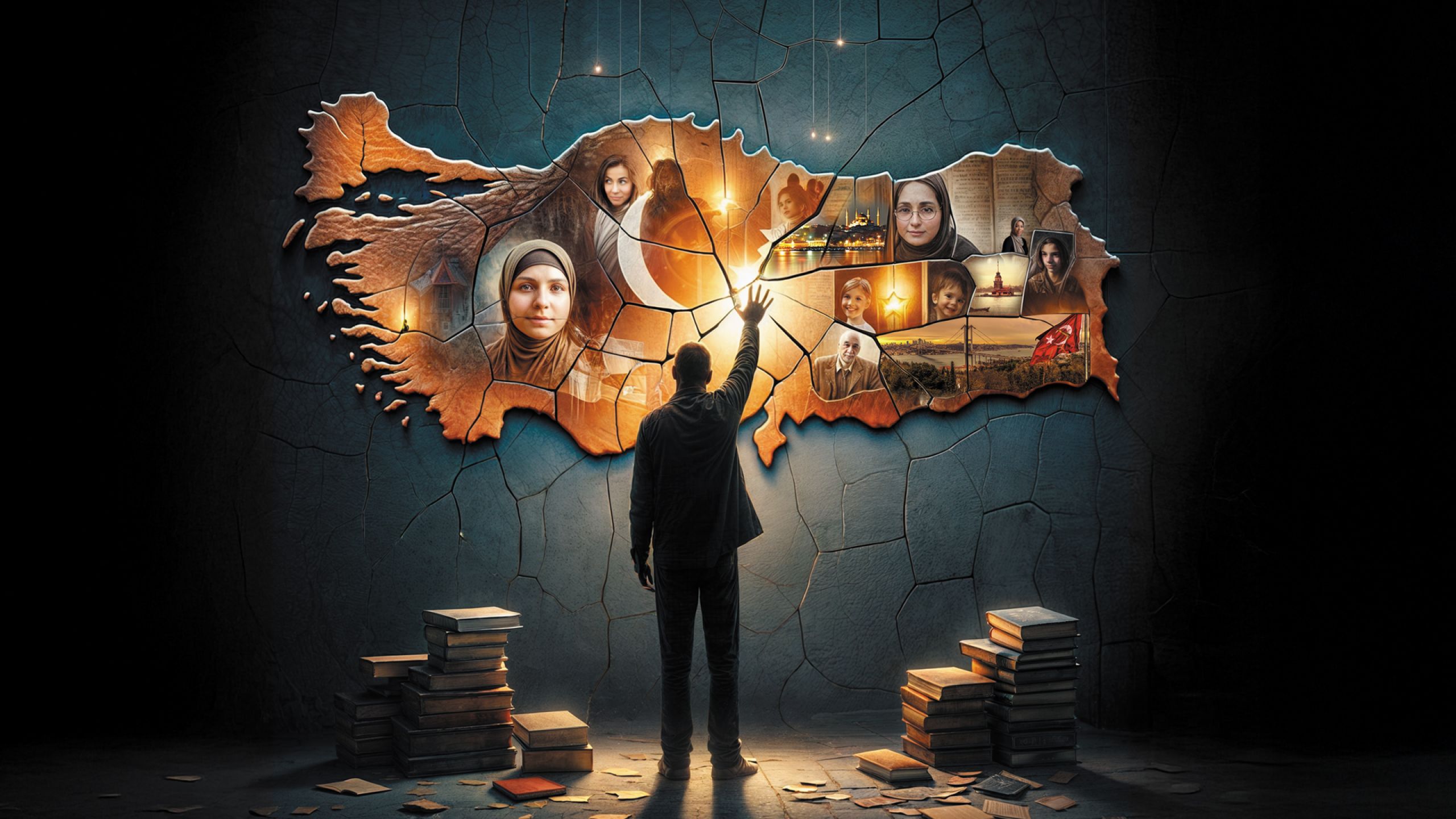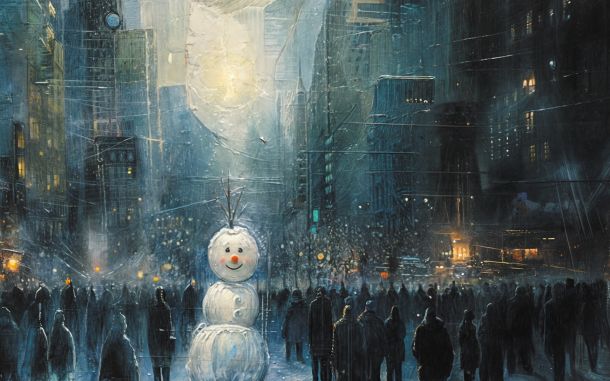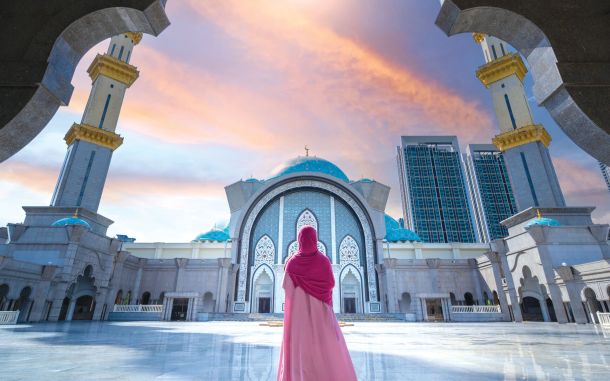Home Is Tucked Under the Smiling Sunflower Seeds

In This Article
-
"Home" is the word that will swish around in my father’s mouth when he talks about a home I’ve only known through blazed childhood memories and the home he can never seem to forget.
-
In the backseat of our car, I was under the fog of the summer heat when I heard, “BREAKING: Soldiers block off Istanbul bridges."
-
Home is in you and me. Home is tucked under the heaps of sunflower seed shells as they are smiling because they were breathed into conversations of love. Home is in the undevoted passion of learning and teaching and repeating under unimaginable circumstances.
“Home.” It’s a word that is thrown so lightly around in our daily conversations yet always carries weight regardless of the circumstance. It’ll be the end of my text message to my mother letting her know that we have dinner ready. It’ll be at the beginning of my groans on the days when work has kept my eyes heavy in the morning. It’ll swish around in my father’s mouth when he talks about a home I’ve only known through blazed childhood memories and the home he can never seem to forget. To me, home could be the library I lived across the street from growing up in Ellicott City, where I spent hours in the cubby with the window looking over the budding garden and reading Junie B. Jones. I had only realized this visiting for the first time a decade later and tracing everything with my fingers all over again, seeing little kids with piles of books similar to mine a decade ago. It’s complicated when the first home means something different for everyone in an immediate family. It's a small edge of the feats we decided to take on immigrating to America from Turkey before I had gained consciousness of myself or anything around me, and when both my parents only kept small flip phones.
We started making our new home, in a place with rent that costed a mere 250 dollars and groceries from food stamps. As far as my memory goes back, my parents have constantly been learning and teaching. I can remember students reading red books stamped with gold shiny letters intently lined up on our couches, later myself learning the great works of Said Nursi. I remember endless debates that were heftier than the accumulating heap of laughing sunflower seed shells on the coffee table. Our unfortunately pale-colored couches framed exquisite masterpieces from the artistry of spilling cold tea. The soggy tea leaves became weathered with contemplation and companionship. Sohbets [1] that charted unimaginable webs of thought with dew drops of loving jokes laced in between. I could’ve sworn my mother’s brilliance was fueled half by black tea that perhaps ran slightly over brewed, and the other half by the love she felt for her sister on the other end of the table.
After long nights of banter, my mother taught Pre-Algebra to a classroom of kids with most of them dawning ankle monitors under their sweatpants. They called home the part of Baltimore that was blockaded from the rest of the world, their struggles were hard to even discuss amongst my parents. She hugged those bright students so dearly when the world had shunned them in the corners of redlined [2] Cherry Hill. In spite of these burdens, I witnessed people immensely close to their souls and their faith. One of her student’s mother tightly grasped her hand in prayer. I dawdled in conversation and laughs in the laps of students who lost family members to gang violence yet had pure reciprocation for a stranger. Unconditional reciprocation can be difficult to find and demands truly compassionate and amiable character, especially in the hyper-individualized atmosphere we find ourselves in today. We have much to learn from each other in tactical knowledge and what we can foster in our souls.
Gradually, I began learning as well. I mapped out my lines in Geometry the way I imagine my mother has done in the classroom, how I danced between the lines! My learning was almost constant from Geometry class to reading endless books after school to Saturday school. I spent the mornings of my Saturday’s learning about religion, how Abu Bakr (may God be pleased with him) protected the Prophet (peace be upon him) from snakes in the Cave of Thawr. I was in the car ride home from Saturday school when our conception of home had changed permanently and suddenly. The way in which under later realization was ultimately inevitable but at the time felt world bending.
In the backseat of our car, I was under the fog of the summer heat when I heard “BREAKING: Soldiers block off Istanbul bridges. Turkish military attempting coup.” which somehow bubbled through my post-schooling fatigue. What followed only felt like a blur and slowly boiled up to our new understanding of our “home country,” always in my introduction to strangers when they ask where I am from. Turkey is only lived through two summers growing up yet is stitched between my whole American experience. Only a myth that I have longed for and remember in hazy fragments of my young eyes. It is not a place I know by any means no matter how much I stacked books of Turkish history from the library on my bedroom floor or trace my village on Google maps. Somehow this home mapped out every facet of my experience. I spent college years on and off Twitter watching the fate of my country twist and turn. Street interviews of people calling us terrorists and myself using google translate to fully understand their sentiments. Between studies of Sociology and the American Civil Rights movement, I meticulously translated court documents. I became an interpreter in conferences with lawyers for young people who never imagined becoming a refugee. My lifelong friends are people who may never see their parents again but taught me all the new lingo and fixed my pronunciation. They memorialized their home in snapshots showing me the lives that they left behind. I found myself surrounded by people who knew my home country better than I ever could have, and others who were classmates that didn’t even know what language my home country housed, and yet still felt desire to mock my identity. I’ve spent my youth proving I’m not a terrorist to them and my third grade English teacher and half of my own people.
The corruption festering in my home country by my own people is what deeply wounded many of us the most. Nevertheless, we built our own havens, homes to countless brothers and sisters. We held our sisters who broke down over relatives rotting in jail cells in the same buildings we learned how to place our tongue in the right ways for reading Qur’an. Our ribs became tight with laughter in late hours after tarawih in the same place we held bake sales to send help back to our country. The buildings change, we are told to not ever go back to grandma’s village over the phone, and we go to new places to continue our toil. I felt frustration when classmates talked so dearly of their grandmother’s house realizing they are not clouded with a mystical dream when trying to reminisce of the same.
Yet I began to let go of this subtly hummed yearning that has plagued me and accept love where it finds itself in different stemmed and split paths. This is only through realizing people as close as your neighbors are piecing together these branches of pathways over years of displacement from family and attempting to map out belonging. We hold each other in the pain of this journey, eventually realizing we have found it within each other. Belief houses many pillars of love and perhaps we need to be reminded that the souls we connect ourselves with transcend anything tangible such as land, or even time. Surely, land is critical. The dilemma of which land is mine has burdened me for years. Those students in Baltimore have their lives altered immensely due to their redlined land. Generations are loved for centuries over land. Blood is tragically spilled over land. Standing for your land can mean seeking justice for your people which is absolutely necessary. In circumstances of injustice, know that you are never alone. You might be forced to carry your home in your blood and your heart. Love may not be able to reach us in our “home country” and home may not be hammered shut there.
For those of us who never lived in the same place for longer than two years. For those us of who will never know our home country more than the legends and history we read in books. For those of us who have been called slurs by people in the melting pot you were born in: Home is in you and me. Home is tucked under the heaps of sunflower seed shells as they are smiling because they were breathed into conversations of love. Home is in the undevoted passion of learning and teaching and repeating under unimaginable circumstances. Home is my sister fixing my hijab before prayer. Home is my mother gardening in the way her mother taught her. Home is in the salam from the person you haven’t seen in years but know you are always welcome in their embrace. Home is the teacher that made you feel seen when classmates mocked who you were. Home is in the houses of people who have their whole family trapped in Turkey but remind you their door is always open. No matter how much they tried to strip us from our home, or no matter how much they have deformed our homes into a succumbing cavity, our glaring feat is that we have found it within each other. So, they will curse us and the buildings and those we cherish, and we will love beyond it all.
Notes
- Sohbet in Turkish (originally sohbah in Arabic) means companionship, informal conversations mainly on matters of belief and religion.
- Redlining is known as the structural restriction of resources and services from a community in a discriminatory manner, and has historically heavily impacted predominantly lower income and African-American communities in the United States.









